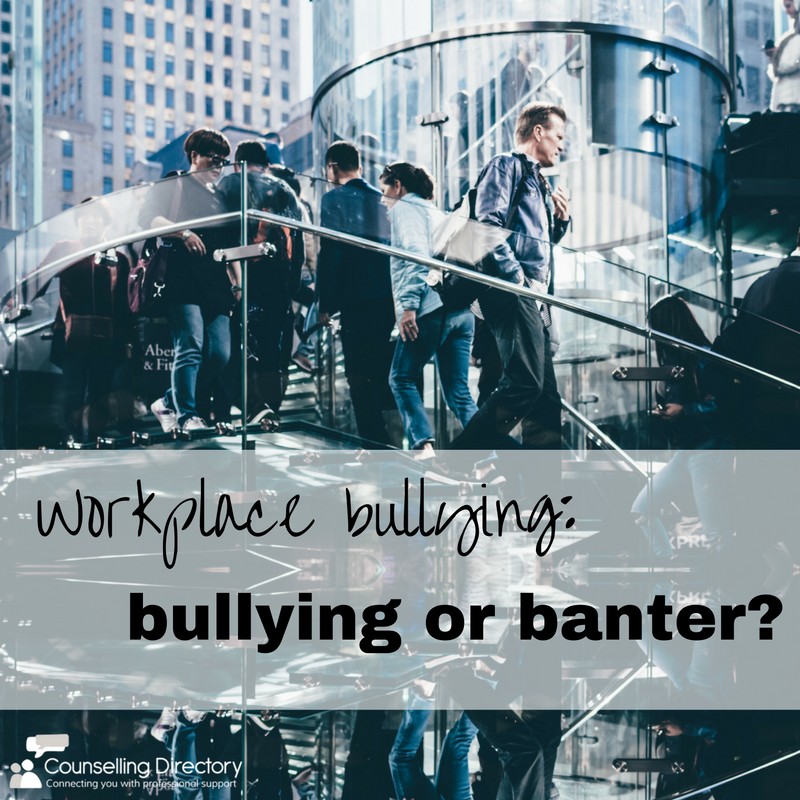Workplace bullying: bullying or banter?
When you hear the word ‘bullying’, many of us will think back to a time in school, where ourselves or someone we know were being bullied. But it is important to remember that bullying can happen at any time of life, anywhere.

We recently surveyed more than 1000 adults in the UK. Of the 1300 respondents, 30% experienced bullying in the workplace. 60% of those bullied at work did not seek any form of support, from anyone.
We spend the majority of our waking hours at work, so it should be an enjoyable part of your day. If you are going through a hard time, it can be detrimental to your productivity, confidence and health.
But how do you know if it’s ‘just workplace banter’ or a more sinister situation?
Firstly, check your workplace anti-bullying policy. This should be clear and informative in what constitutes to bullying and the steps to take in reporting it. Information on available support and who to speak to should also be clearly outlined and accessible to employees.
What if my work doesn’t have an anti-bullying policy?
You’re not alone, a shocking 63% of those surveyed said their workplace/school/college/university provided no information on bullying or an anti-bullying policy. If this is the case, speak to someone and suggest writing one. For more information and tips to creating a bully-free workplace environment, visit our dedicated fact-sheet.
Remember you’re not alone and speak up
No person should be allowed to cause you harm or upset, so speak up. We react in different ways, and while a colleague may see something as a joke, you may not. More so, if the situation continues after you have said you are uncomfortable, it can build up. You can become stressed, irritable and upset.
We understand that speaking up can be difficult, but there are people that care for you and staying silent can be very isolating. If you are not comfortable speaking to a manager, consider speaking to the HR department or a fellow colleague. Sometimes you need a new perspective on the situation and reassurance that somebody is there to tackle it head-on.
“I always considered myself to be a confident, strong person, but the person doing the bullying was my boss. I didn’t feel able to do anything about it for a long time, but eventually I felt my personality was changing as a result of the bullying and at that point sought held from Human Resources at my place of employment. Once the problem was addressed, the bullying stopped and I felt like the person I really was once again.”
There is no legal definition of bullying, but it is usually defined as repeated behaviour with intent to physically or emotionally harm another person.
Bullying can take many forms, but if you are unhappy, talk about it. People can perceive things in different ways, while one person thinks they are being friendly, another may not see it in the same light. Remember that you are not alone – while it may feel like you are in a dark place, there can be a way out.

Find a therapist dealing with Work-related stress
All therapists are verified professionals





